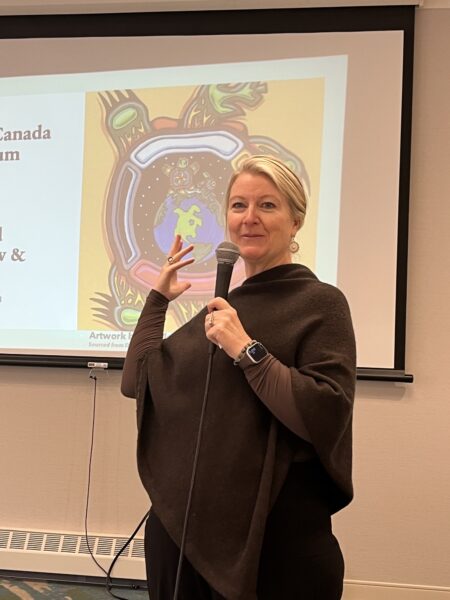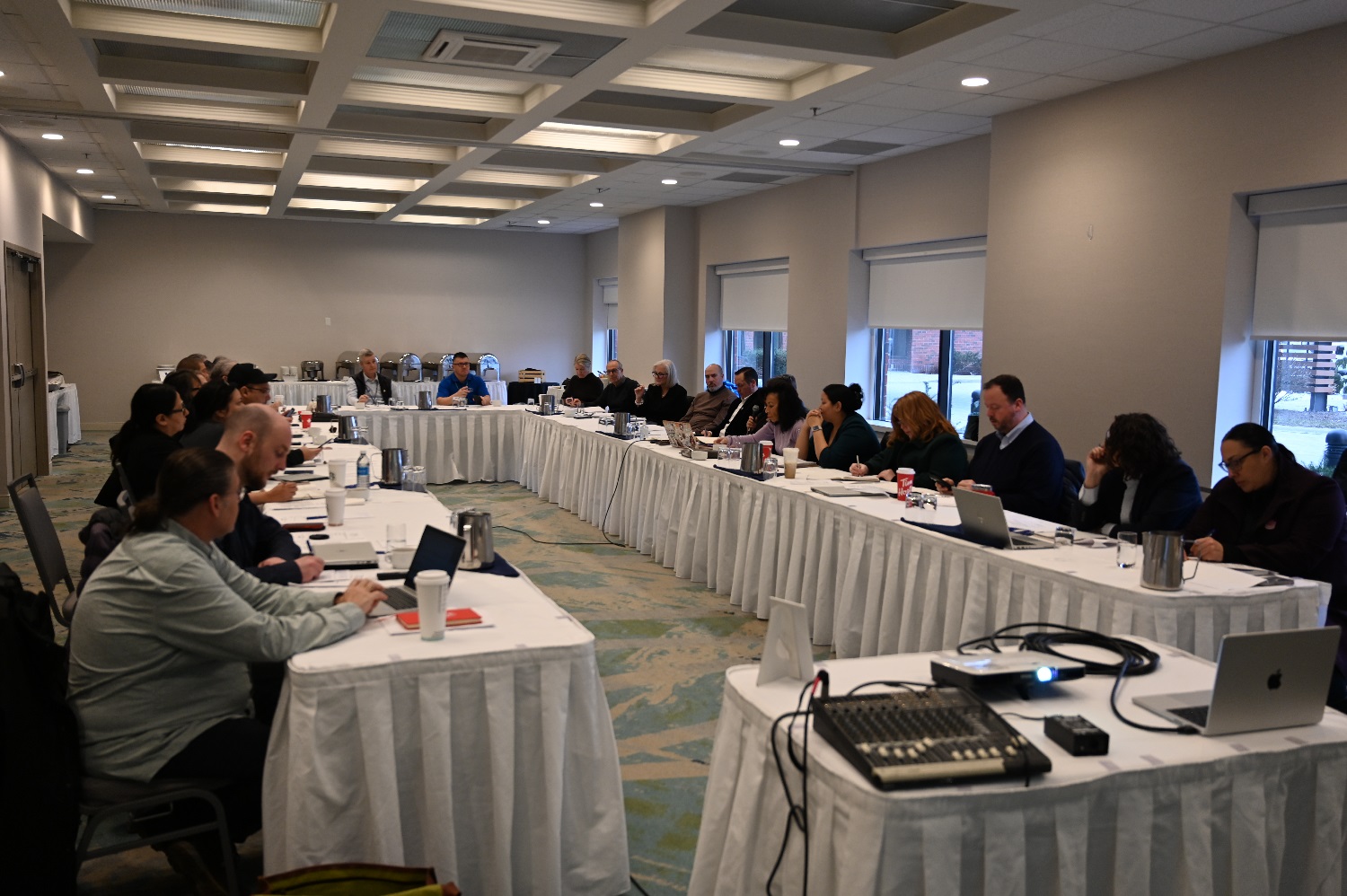The Tripartite Forum’s Executive Committee Meeting hosted a series of serious discussions on its future, how to move it forward, and how the work should flow from committee to committee.
One major purpose of the January 16th event in Dartmouth was for consultant Heidi Weigand to outline a series of recommendations to the Executive Committee.
Weigand’s key recommendations included her belief that the Executive Committee should meet yearly for a day and a half.

Heidi Weigand speaks at the January 16th Executive Committee Meeting of the Tripartite Forum at the Delta Dartmouth, delivering a series of recommendations to improve efficiency and capitalize on the strengths of the Tripartite Forum.
“You walk away from the day-and-a-half, and you give the working table some things to do; they’ve got a clear understanding and mandate and that’s going to remove a lot of confusion that the co-chairs are talking about.”
Weigand noted these changes are important because of the changing and dynamic nature of the Tripartite Forum.
Weigand told Executive Committee Members that she also recommends an approach the synthesizes the concerns of the executive level “top-down” priorities with the “bottom-up grassroots” priorities of the working table, making decisions together, correcting what she described as a “process gap” in determining the direction the forum goes in.
“The best thing to do is to come together on both of those and use both approaches, and what you’re going to see is hybrid – grassroots and top-down working together,” she explained.
Weigand recommended finding clarity on the matter of membership, and what role everyone has in the decision-making progress, and at what point someone engaging with the working tables becomes a permanent member – as well as maintaining a focus on Tripartite mandates.
Weigand stressed the need to prioritize gender when setting working table and forum priorities.
She also noted that the communications strategy should focus more on the roots many successes Mi’kma’ki that began as conversations in the Tripartite Forum, profiling its success stories.
“History shows that conversations can produce amazing outcomes, but we don’t always know the history. If you think back to a lot of things … the stories linger back to conversations at the Tripartite table,” she said.
“At one point, they were a complex problem that required the three nations to be talking about it. A tremendous amount of success that happened actually started in the conversations here.”
Weigand also recommended reviving a database of meeting minutes and notes.
Her recommendations are part of a reform and forthcoming strategic plan to revitalize the forum and allow it to do what it does best.
At the meeting, the assembled Chiefs in attendance engaged in a protracted roundtable discussion. The roundtable heard chiefs talk about deep and pressing concerns from their communities, as well as serious priorities relating to how those communities interact with one another and the Tripartite Forum.
At the meeting, Tripartite Liaisons Sam Trites and Jewl Stevens shared reports, as did Project Coordinator Brad Sullivan, and Communications Staff Jessica Christmas and Sam Macdonald – all updating the assembled Chiefs and dignitaries on their work over the past several years.
The meeting, which took place at the Delta Dartmouth, was the first instance the Executive Committee has come together since March 2021.

